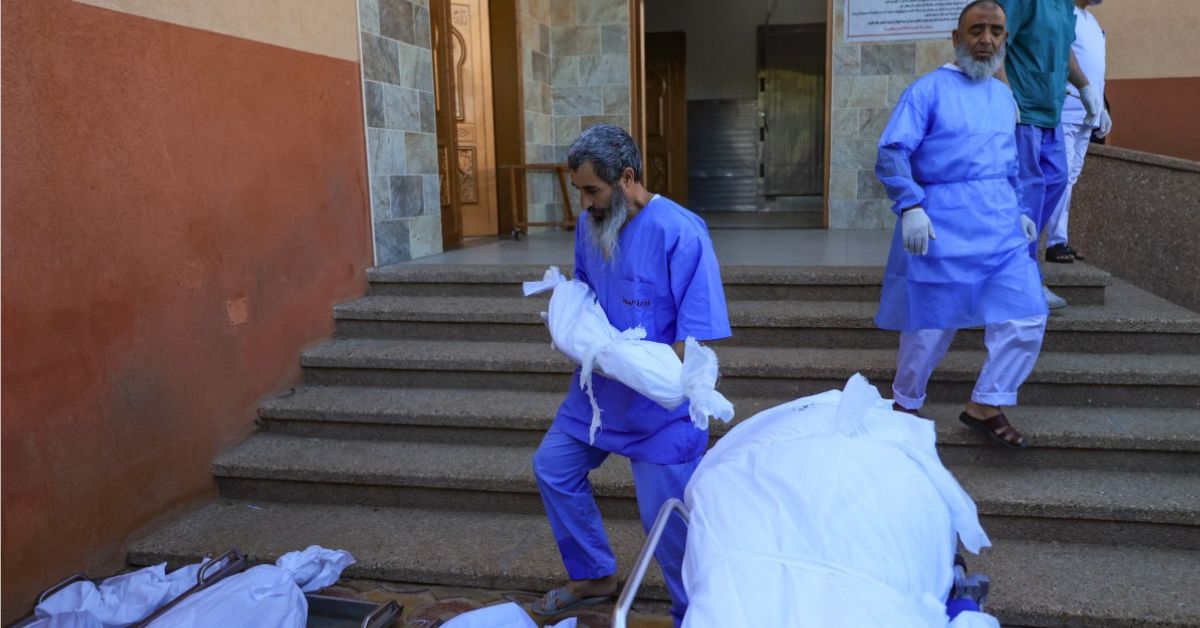NEW DELHI — Russia’s invasion of Ukraine in February 2022 sparked significant reaction in the West, unparalleled in recent times. Western media outlets began instructing Ukrainians in the creation of Molotov cocktails and tactics for sabotaging the advancing Russian tank columns. Meanwhile, Western leaders vied to express their condemnation of Russia in increasingly strong terms. Initially, there was uncertainty regarding the Ukrainian army’s ability to contend with Russia’s formidable military. However, witnessing substantial Ukrainian resistance, nations like Britain, Germany, and the United States injected billions of dollars’ worth of advanced weaponry into Ukraine. Their intention to integrate Ukraine into NATO was disrupted by President Vladimir Putin’s military campaign.
The West’s use of propaganda, diplomatic influence, and economic sanctions against Russia has been remarkable. Through legal and moral arguments, they have consistently condemned Russia in various forums and through media in their own regions, as well as in Asian and African countries, which are not directly involved in the military tensions between Russia and the West. There has been strong criticism of Russia’s alleged targeting of hospitals, schools, and civilian infrastructure in Ukraine.
The situation contrasts starkly with the dynamics in Israel and Palestine. Since October 7, following a series of attacks by Hamas inside Israel, the Western response to the conflict has been different. Western leaders are aware of the challenges faced by Palestinians in the conflict where Israel has used significant American-supplied weaponry. Discussions in Israel have even touched on the potential use of nuclear weapons against the densely populated area of 2.3 million people.
In the case of Gaza, which has been under Israeli control for over 16 years, the West has been notably supportive of Israel’s actions. This support has continued despite limitations on essential supplies and freedom of movement for the people of Gaza, and despite the impact of military actions on civilian infrastructure, including hospitals, schools, and homes, all under the umbrella of American diplomatic and military protection.

On November 15, US President Joe Biden held a press conference following his meeting with Chinese President Xi Jinping at a private estate near San Francisco. During the conference, addressing the situation in Gaza and the Israeli military’s actions, President Biden repeated a widely disputed claim that Hamas has its “headquarters” beneath a hospital. “That’s a fact,” he stated, despite the lack of public evidence to support this assertion.
This statement raises questions about the sources of these narratives. President Biden also insisted that Israel’s actions in Gaza were not indiscriminate. He downplayed the extensive destruction, likened by some to a nuclear event, arguing semantics to detract from the reality that vast neighborhoods were devastated with American-supplied weapons. Notably absent in his remarks was any mention of the casualties, particularly children, affected by the bombings. He portrayed Israel’s actions in Gaza as caring, a comparison which many might find contentious.
In contrast, President Biden was unequivocal in his condemnation of Russia’s actions in Ukraine, describing it as a “brutal war of aggression.” He implied Ukraine’s role as a Western proxy in the conflict with Russia. The question arises: Is the US indirectly involved in the Gaza conflict through its support of Israel?
Recent events have led to global scrutiny of Western positions. There’s a growing sentiment that Western nations, particularly in the Middle East, may no longer be viewed as the moral arbiters they once were. This is especially true when they discuss topics like human rights and democracy, as these statements are increasingly seen as contradictory to their actions or inactions in various international conflicts. The situation in Gaza has intensified these perceptions, highlighting what some see as the moral inconsistencies in Western foreign policy.
The Western strategy of using deception to engage other countries in their efforts for global institutional dominance is not a recent development. The Anglo world, in collaboration with European countries, has been fortifying its position for decades, preparing to assert itself globally in ways reminiscent of past conflicts.
The situation in Israel, with its aggressive actions receiving full support from the US, has revealed a stark aspect of Western policy. This support implicates Western leaders in the consequences of these actions, including those affecting Palestinian civilians.
There was an expectation among these leaders that the truth of their policies and moral compromises would remain concealed, especially during the ongoing Russia-Ukraine conflict. However, the reality of their involvement in Israel’s actions, which have affected civilians ranging from infants, women, worshippers in mosques, hospital patients, to children in everyday settings, can no longer be obscured.
In this context, Western leaders have not distinguished between combatants of Palestinian resistance groups and non-combatants, such as schoolchildren and hospital patients. Their approach indicates a disregard for established rules of engagement when they are involved in conflicts. The scale of suffering in Gaza within a five-week period has been severe compared to the Ukrainian conflict’s duration of 20 months. As of October 6, 2022, the conflict in Ukraine has resulted in the death of 1,741 children, while in Palestine, the death toll until November 15 included 4,650 children and 3,145 women, out of a total of 11,320 casualties. Nearly 1.5 percent of Gaza’s population has been killed or injured, with about 80 percent displaced, enduring extreme hardship.
The United Nations High Commissioner for Human Rights (OHCHR) reported that between February 22, 2022, and September 10, 2023, the conflict in Ukraine resulted in 9,614 civilian deaths and 17,535 injuries. This contrasts with the situation in Gaza, where the conflict has disproportionately impacted the civilian population, unlike the primarily military engagement in Ukraine. There is speculation that Israel might have considered using weapons of mass destruction, including nuclear, chemical, and biological weapons, if not for the risk of escalating the conflict to a regional level, potentially affecting critical infrastructure in Tel Aviv and the Haifa waterfront.
The high number of Palestinian civilian casualties is a result of Israel’s policy, which appears focused on the systematic reduction of the population in the occupied territories. This policy not only receives US approval but also seems to draw from America’s military doctrine, which includes targeting civilians to increase the human cost for adversaries. The American-Israeli approach to warfare is also marked by efforts to inflict a high number of injuries among civilians. A review of Anglo-American conflicts reveals this pattern. The Pentagon’s support for Israel, coupled with its extensive propaganda efforts, has overlooked the modern diversity of news and information accessible globally.
This approach has starkly exposed the United States as an egregious violator of international laws and moral principles. The so-called ‘rule-based order’ that Americans frequently refer to in diplomatic speeches appears severely undermined, threatening the integrity of the United Nations system itself.
The US’s manipulation of the UN system has been particularly evident recently. A video clip of US Secretary of State Anthony Blinken has been circulating on social media, where he expresses concern over Russia’s actions in Ukraine during a United Nations Security Council meeting on February 24, 2023. “We can never let the crimes Russia’s committing become our new normal… Bombing schools, hospitals, and apartment buildings to rubble is not normal,” Blinken stated. However, these remarks now seem contradictory and disingenuous in light of his apparent support for Israeli actions in Palestine.
In the Arab and Muslim world, there has long been a perception that the United States is complicit in the actions of the Israeli government, which receives substantial US aid. This belief has been reinforced by the recent events and the responses of American officials.
Zionist settlers, including those from the US, have been relocating to Palestine and seizing land. Their actions often involve threats to Arab nations, attacks on Palestinians, and aggression towards Arab properties and the environment. The Anglo world, rather than condemning these activities, seems to identify with these settlers. Their actions are reminiscent of historical settlers from England in regions they termed the New World, Australia, and New Zealand.
The ongoing crisis in the Middle East sets the stage for potentially graver developments in the future. The West’s backing of Israel implicates it directly in the conflict, shifting its role from that of an observer or peace broker to an active participant. This involvement suggests that a time may come when Israeli individuals accused of war crimes, along with Western leaders, might face legal accountability for their actions in the region.
Shakir Husain is New Delhi-based political commentator who contributes to several international publications.
The opinions expressed are those of the authors and may not reflect the editorial policy or an official position held by TRENDS.








